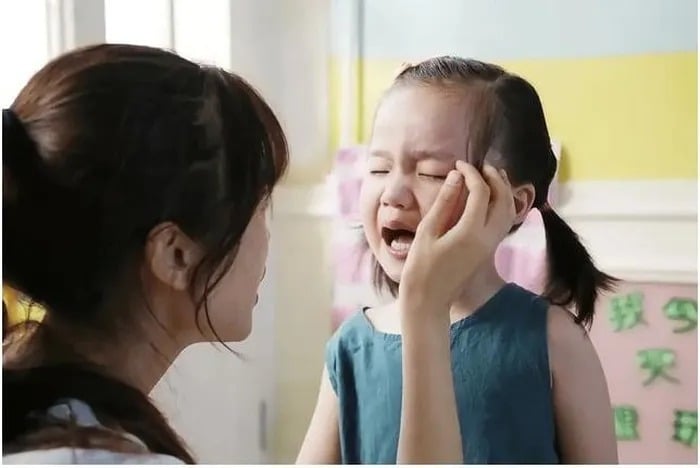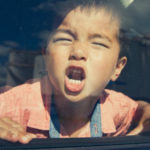“Parents Stay Together for the Sake of Their Children”
In reality, children cannot bear such words.
The reason is simple. No one can shoulder the responsibility of another person’s life. It is too heavy a burden for anyone to bear.
When children hear such things, they only feel more stressed and pressured. As the frequency of such words increases, children gradually become disgusted, indifferent, and cold. Their compassion and concern for their parents will also gradually disappear.

In reality, children cannot bear such words.
Many children have shared that their parents said this to them when they were young. And without exception, they all hoped that their parents could divorce. Because in a family filled with quarrels and cold violence, they would rather live in a lonely house of their own.
Therefore, if parents say such things, they are actually only comforting themselves, thinking that their children will sympathize with them. In fact, it will only make the children feel miserable and disgusted.
Although parents and children are family, there are some things that still need to be clarified. It is not advisable to put the entire reason for not divorcing on the child, as this will hurt the child.
“You are not as good as other people’s children.”
For a long time, “other people’s children” has become a nightmare for many children. This is an image that many parents often use to talk about a child who is obedient, studies well, or even perfect in every way… in order to deter and urge their own children to try harder. However, comparing one child to another not only harms the health and spirit of the child, but it also casts a psychological shadow over the child’s mind for the rest of their lives.

For a long time, “other people’s children” has become a nightmare for many children.
Even though it is clear that all comparisons are inappropriate, parents still cannot restrain themselves from comparing their children. From weight, height, to scores… anything can become a target for parents to put on the scale of comparison. Many parents naively think that comparison is a way for children to look back on where they are lacking and strive for improvement. But that is not the case.
Praise the child every day, compare them with themselves from yesterday, and see if they are making progress each day. Never hold someone else up as a mirror, reflecting what your child doesn’t have. Every child has different strengths and weaknesses. The most important thing is that you help your child develop their strengths and minimize their weaknesses.
“You are the cause of all the problems.”
In life, some parents have a peculiar attitude when faced with problems. Their immediate reaction is usually to blame their children. They will quickly find fault with and criticize their children’s mistakes and shortcomings, without considering external factors or objective reasons.
They often do not consider whether the problem was caused by someone else, or perhaps by unforeseen events. In their minds, any incident is usually seen as being caused by the child’s actions, which causes confusion for those around them.
Some parents even criticize their children when they see them sick. But have they ever considered that children getting sick can also be unforeseen and not always the result of something they did wrong? They themselves would not want to be faced with illness.
Although everyone makes mistakes, some parents do not understand or sympathize with their children. In some cases, they will even prolong their reproaches if the child breaks a bowl. This behavior is truly incomprehensible.
In reality, no one can avoid making mistakes. Even adults like parents cannot avoid them. Constantly criticizing a child’s minor faults only damages the relationship between parent and child.



































